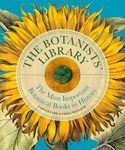![Botanical Entanglements Botanical Entanglements]()
Click to have a closer look
About this book
Contents
Customer reviews
Biography
Related titles
About this book
To this day, women face barriers in entering scientific professions, and in earlier eras the challenges were greater still. But in Botanical Entanglements, Anna Sagal reveals how women's active participation in scientific discourses of the eighteenth century was enabled by the manipulation of social and cultural conventions that have typically been understood as limiting factors. By taking advantage of the intersections between domesticity, femininity, and nature, the writers and artists studied here laid claim to a specific authority on naturalist subjects, ranging from botany to entomology to natural history more broadly.
Botanical Entanglements pairs studies of well-known authors – Eliza Haywood, Charlotte Lennox, Maria Edgeworth, and Charlotte Smith – with authors and artists who receive less attention in this context – Priscilla Wakefield, Maria Jacson, Elizabeth Blackwell, Henrietta Maria Moriarty, and Mary Delany – to offer a nuanced portrait of the diverse strategies women employed to engage in scientific labor. Using socially acceptable forms of textual production, including popular periodicals, didactic texts, novels, illustrated works, craftwork, and poetry, these women advocated for more substantive and meaningful engagement with the natural world. In parallel, the book also illuminates the emotional and physical intimacies between women, plants, and insects to reveal an early precursor to twenty-first-century theorizing of plant intelligence and human-plant relationships. Recognizing such literary and artistic "entanglement" facilitates a more profound understanding of the multifaceted relationship between women and the natural world in eighteenth-century England.
Contents
Introduction
1. Caterpillars in the Garden: Teaching Natural History in Women's Periodicals
2. From Native Blooms to Monster Plants: Women's Botanical Textbooks and the Lives of Plants
3. Pedagogies and Possibilities: Maria Edgeworth's Scientific Education for Women
4. Sketching Vegetality: Blackwell, Moriarty, and Illustrated Botanical Texts
5. Collecting and Creating: Mary Delany's Naturalist Career
Coda: Naming is Not Knowing: Charlotte Smith's "Flora" and Vegetal Proliferation
Customer Reviews
Biography
Anna K. Sagal is Visiting Assistant Professor of English and Creative Writing at Cornell College.





























